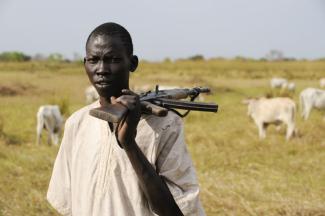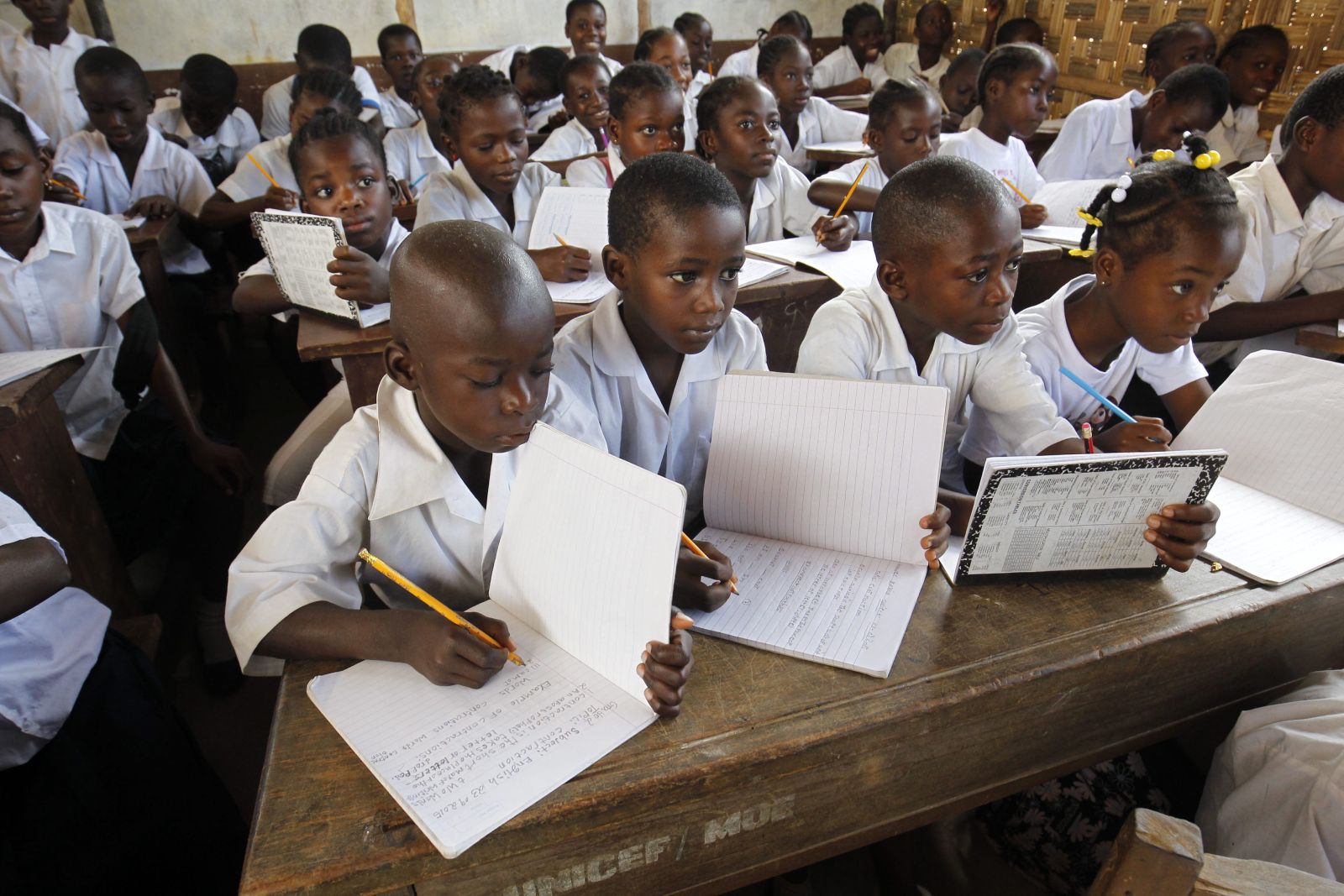Gender relations
Risking one’s life to be able to marry

Jada Tombe is 27 years old and considers himself lucky to still be alive after participating in “cattle rustling”. As in the USA, this term means to steal cows in South Sudan. “We risk our lives to raid other communities so we can pay bride prices,” the young man says.
Not all rustlers survive. Three of his cousins, Tombe says, were killed in the past three years trying to rob animals from other villages. There often are casualties on the defensive side too, as Tombe points out: “Even if you don’t go on raids, other communities will attack you, and you may be killed defending your herd.”
In South Sudan, cows and goats are the traditional currency for paying bride prices. “If you can’t afford to pay many cows,” Tombe says, “that hurts your pride and you will move in public with your head bent.” It is embarrassing to offer less than 20 cows, he reports, and adds: “If I pay 70, 90 or 100 cows for a woman, it will definitely demonstrate that I’m rich and a first class person.”
The tradition is particularly strong among pastoralist communities including the Mundari, Dinka, Nuer and Teposa tribes. Village youths go on rustling raids because otherwise they cannot get the animals they need to be able to marry a woman of their choice. Most often, cattle are stolen from other tribes, but sometimes raids are carried out within one’s own community.
The authorities are unable to control the situation. John Deng works as a police officer in Bor, the capital of Jonglei state. “We lose a lot of young and civilians in cattle rustling,” he reports. Some 2,000 people were killed in this context in the state 2008 to 2012. Many civilians own automatic rifles, so it is hard for the authorities to apprehend perpetrators of violence.
According to Deng, it would help to pass a law that would limit the level of bride prices. Moreover, the village youths need economic opportunities.
South Sudan is not a peaceful country however. It only became independent from Sudan in 2011, after three decades of civil war. The political system remains fragile, and a brutal spell of civic strife only ended recently. Violence may erupt again. This setting does not facilitate the kind of economic development that would let masses prosper. Moreover, it makes people adhere to traditions. Most rural people have no alternative but to stick to the culture of their tribe.
In any case, the rule of law is weak. Government agencies at the national and state levels would struggle to enforce any new rules concerning bride prices.
The number of cows demanded for a bride has changed over the years. South Sudan is oil rich, but many people live below the poverty line. Today, cash is used for bride prices too, but in rural areas, livestock remains the prevalent currency. After independence, the economic situation improved for some people, and bride prices have been rising accordingly. For illiterate youngsters in rural areas, however, this has only made things more difficult. They make up the bulk of South Sudan’s people, and they normally do not have good, well-paid jobs.
Young brides, elderly grooms
Apart from cattle rustling, the bride-price tradition has other detrimental consequences. One is that girls get married at a rather young age. According to UN Children’s Emergency Fund (UNICEF), more than 60 % of South Sudanese girls are married before they turn 18. In fact, teenage girls are said to be three times more likely to die in child labour in this country than to complete primary education.
Poverty is an important reason: destitute parents are often desperate to collect the bride price and no longer be in charge of feeding their daughter.
The same tradition, on the other hand, forces many men to postpone marriage until the age of 40 and later. After all, they have to accumulate enough cattle, goats or money to afford the bride price. Sometimes, an engagement breaks up after years because a man simply does not manage to come up with the agreed bride price.
That is what happened to 40 year-old Yanta Nickolas. His fiancée’s father demanded 285,000 South Sudanese pounds (about $ 8000), but the most he could only afford was 50,000 pounds. He actually has a comparatively well-paid job, but he still only earns about 2,000 pounds per month. “Even if I was given another 10 years, I couldn’t save that amount of money,” he says. Moreover, it would mean postponing marriage for another decade. His engagement lasted five years.
In South Sudan and around the world, women’s-rights activists oppose the mere idea of paying a bride price because it implies that women are something like traded commodities. South Sudanese brides, however, often appreciate high prices. Alakiir Jauch, who married two years ago and is now 26 years old, says it made her feel “more worthy” that her husband paid 520,000 pounds. In her eyes, his struggle to raise that huge sum shows that “he really wanted me”.
She has a point, argues Lewis Anei Kuendit, an adviser to the ministry of youth and culture and former governor of Warrap state. He is an expert in history, and he sees some merit in the bride-price tradition. In his eyes, it is a symbol of commitment, allowing the bridegroom to show appreciation of his future wife whilst honouring her parents at the same time. In the past, moreover, the payment of the bride price was a sign of maturity and could indicate that a man was prepared to manage resources prudently. Obviously, this is an essential trait in a breadwinner.
Anei emphasises, however, that people should agree “reasonable amounts” and the focus should be on “the future relationship of the marriage”. He adds that excessive bride prices are currently distorting the idea of marriage. Many couples, he warns, do not find comfort and love because weddings have been reduced to a kind of business transaction. In his view, many families are too eager to collect some kind of wealth fast, overlooking how fast an economic fortune can erode.
An excessive bride price, moreover, often becomes a serious burden on a young family. The reason is that men take out loans to get married. Having to repay the debt, they then lack resources for investing in the family.
All summed up, however, Anei thinks that matters are toughest in the rural areas. “The worst consequence of high bride prices,” he says, “is cattle rustling.”
Philip Thon Aleu is a South Sudanese journalist.
pthonaleu@gmail.com
Parach Mach is also a South Sudanese journalist.
parachmach@gmail.com











